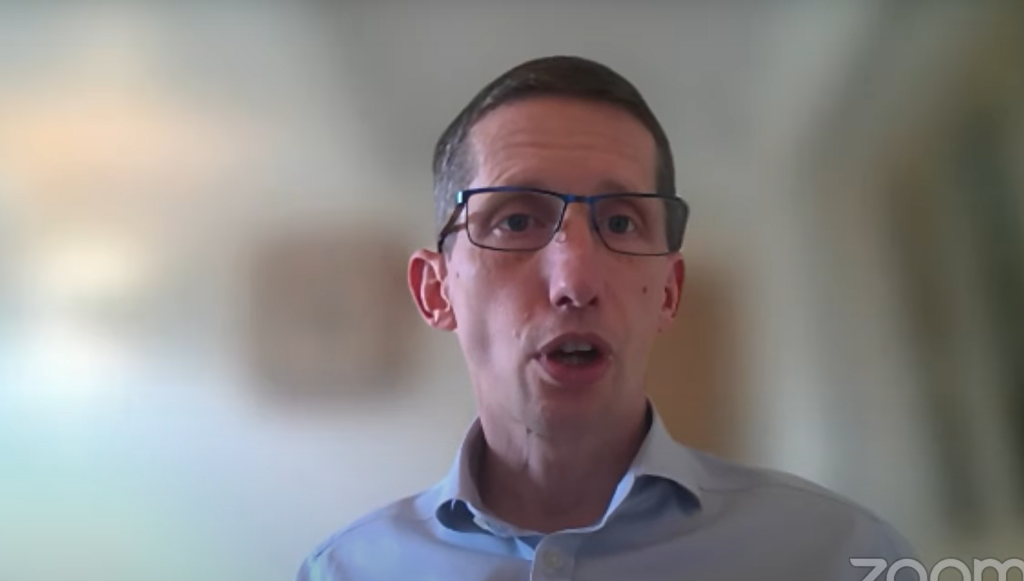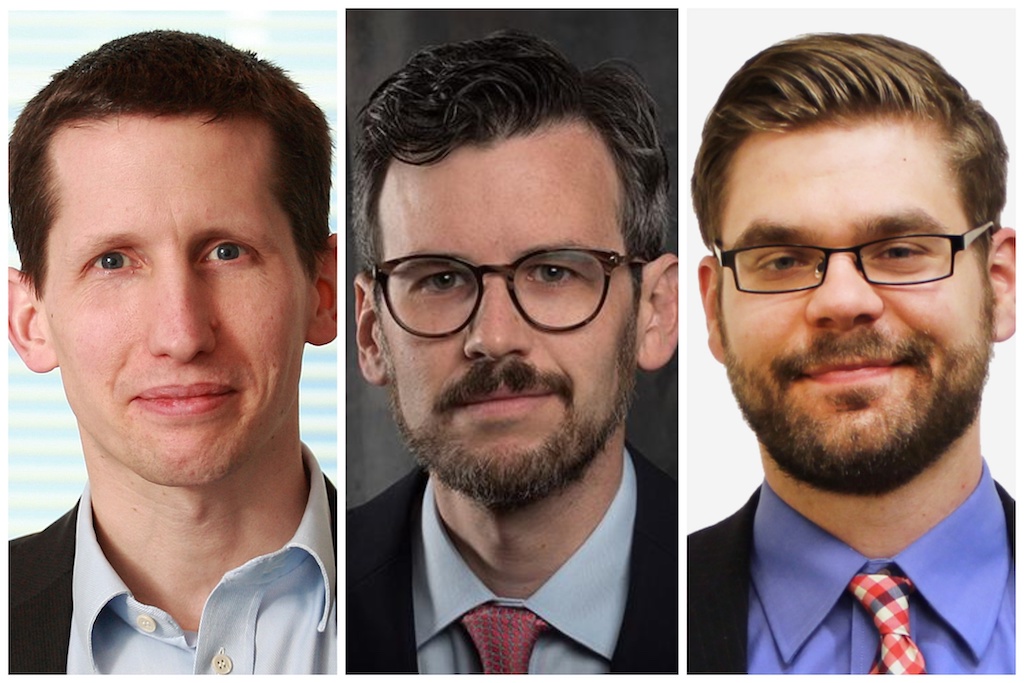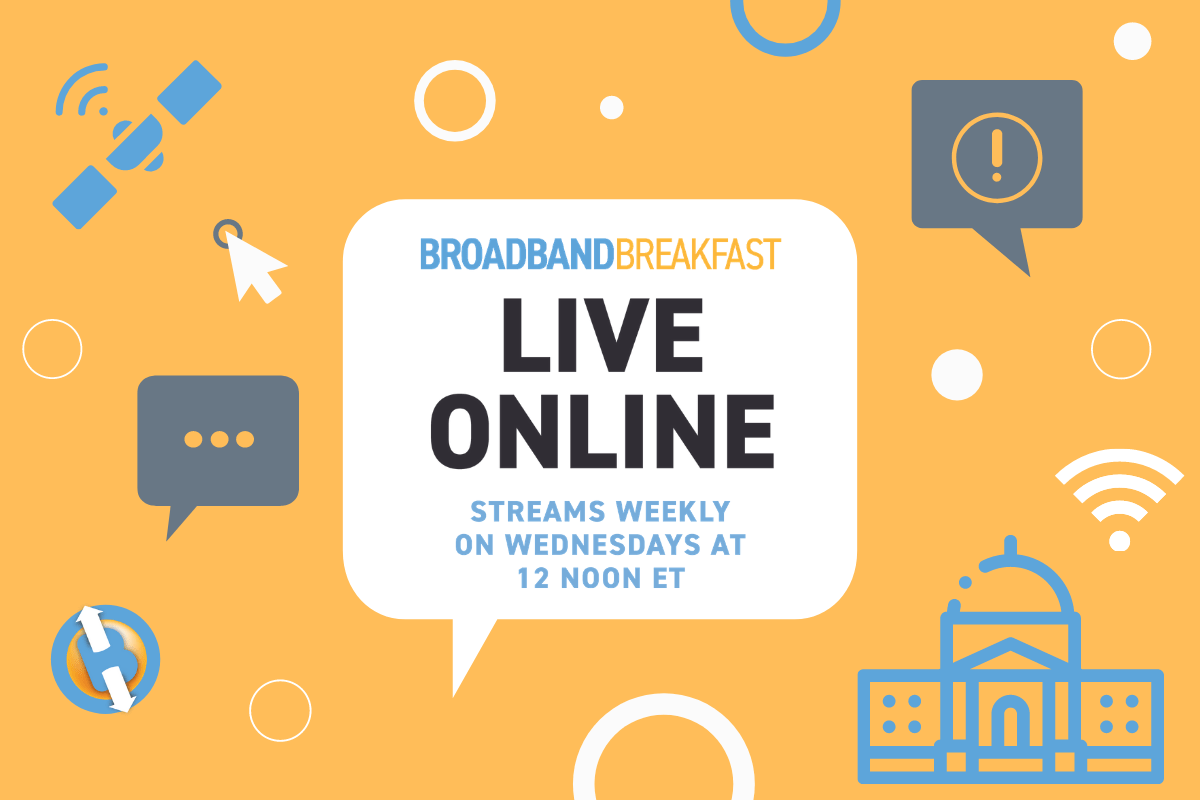Analysts Reiterate Belief BEAD Will Connect All Locations in U.S.
Bead will connect over 90 percent of all locations, both unserved and underserved, to high-speed internet.
Teralyn Whipple

WASHINGTON, July 5, 2023 – Experts involved in a report stating the $42.5-billion Broadband Equity Access and Deployment program will be enough to connect the “vast majority” of American households to high-speed internet doubled down on their prediction at a Broadband Breakfast Live Online event Wednesday.
Michael Dargue, vice president of business consultant group Cartesian, said he expects that it will be possible to connect over 90 percent of all locations, both unserved and underserved, to high-speed internet. Cartesian’s report in early June predicted allocation amounts by analyzing the number of unserved locations in each state relative to all unserved locations in the United States.

Michael Dargue of Cartesian
Some states will be able to deploy fiber to every location and still others will have money left over for affordability programs, said Dargue. A crucial step is for each state to determine where their extremely high-cost location threshold will be, he said.
“Based on our study, the overall message is that there are sufficient funds to get fiber to the majority of locations over all,” said Brian Hurley, chief regulatory counsel at ACA Connects, referencing the Cartesian report.
The BEAD program directs states to define an extremely high cost threshold above which broadband technologies other than fiber will be supported. This threshold has significant impact to state builds, as it will determine how much of the state will be connected via fiber and will clearly highlight each state’s priorities in their goal to connect all their citizens to broadband, said Dargue.
High-cost funding
Pre-announcement estimations for BEAD allocation amounts were based on predictions of unserved locations and high-cost locations in each state, said panelists. According to the BEAD notice of funding opportunity, the National Telecommunications and Information Administration dedicated 10 percent of the $42.5 billion to fund high-cost builds across the country.
The NTIA has not released its definition or methodology for determining high-cost locations. As a result, many estimates predicted that some states, particularly southern states, would receive more high-cost funding than they actually did, said Dargue.
The law requires that the $4.25 billion dedicated to high-cost locations must go to areas that are more than 80 percent unserved. According to a report by Mike Conlow, this can present a significant problem for those states that have widely dispersed unserved locations.
Our Broadband Breakfast Live Online events take place on Wednesday at 12 Noon ET. Watch the event on Broadband Breakfast, or REGISTER HERE to join the conversation.

Wednesday, July 5, 2023 – How Did NTIA’s Allocation of BEAD Funding Compare with Prior Predictions?
A number of organizations tracked allocations under the Infrastructure Investment and Jobs Act prior to the announcement of state allocations on Monday, June 24. How did the numbers released by the National Telecommunications and Information Administration line up with these predictions?
Panelists
- Michael Dargue, Vice President, Cartesian
- Brian Hurley, Chief Regulatory Counsel, ACA Connects—America’s Communications Association
- Will Rinehart, Senior Research Fellow, Center for Growth and Opportunity
- Drew Clark (moderator), Editor and Publisher, Broadband Breakfast
Panelist resources

Michael Dargue is a Vice President at Cartesian, a leading consulting firm in the telecoms and digital media sector. At Cartesian, Michael works with service providers, government agencies, and investment firms. He provides advice on issues such as rural fiber, infrastructure investment, and network expansion strategies.
Brian Hurley is Chief Regulatory Counsel at ACA Connects—America’s Communications Association (ACA Connects). In that position, he oversees and coordinates ACA Connects’ advocacy on legal and regulatory matters as well as its educational programming for member companies. Before joining ACA Connects in 2018, he served 10 years as an attorney at the Federal Communications Commission, most recently as Special Counsel in the Wireline Competition Bureau’s Competition Policy Division.
Will Rinehart is a Senior Research Fellow at the Center for Growth and Opportunity, where he specializes in telecommunication, internet and data policy, with a focus on emerging technologies and innovation. He was formerly the Director of Technology and Innovation Policy at the American Action Forum and before that a research fellow at TechFreedom and the director of operations at the International Center for Law & Economics.
Drew Clark (moderator) is CEO of Breakfast Media LLC. He has led the Broadband Breakfast community since 2008. An early proponent of better broadband, better lives, he initially founded the Broadband Census crowdsourcing campaign for broadband data. As Editor and Publisher, Clark presides over the leading media company advocating for higher-capacity internet everywhere through topical, timely and intelligent coverage. Clark also served as head of the Partnership for a Connected Illinois, a state broadband initiative.
WATCH HERE, or on YouTube, Twitter and Facebook.

As with all Broadband Breakfast Live Online events, the FREE webcasts will take place at 12 Noon ET on Wednesday.
SUBSCRIBE to the Broadband Breakfast YouTube channel. That way, you will be notified when events go live. Watch on YouTube, Twitter and Facebook.
See a complete list of upcoming and past Broadband Breakfast Live Online events.








